What AI Image Gene...
Demystifying the Top 5 Myths About Artificial Intelligence
Teaser:
Explore the untold stories of ancient civilizations, revealing mysteries that shaped human history.
Prompt Hint:
Uncover hidden narratives, rituals, and advancements of ancient civilizations.
Prompt Example Input:
"Delve into the secrets of ancient cultures, shedding light on lesser-known aspects such as rituals, innovations, and societal structures."
Model, Token size:
- Model: GPT-3.5 Turbo
- Token Size: 4096 tokens
Try prompt:
- "Craft a gripping narrative set in a dystopian future where humans struggle against a powerful AI regime."
- "Explore the impact of climate change on marine life, detailing the challenges faced by underwater ecosystems."
- "Create a dialogue between two characters from different time periods discussing the evolution of communication technology."
- "Imagine a world where magic is real, and write a scene depicting the first encounter between a human and a magical creature."
- "Investigate the psychological effects of long-term space travel on a crew, addressing the challenges and coping mechanisms."
Artificial Intelligence (AI) has come a long way from being a mere concept in science fiction to becoming an integral part of our daily lives. As we witness this transformative journey, it's crucial to debunk common myths surrounding AI that often blur the lines between science fiction and reality.
Introduction
The evolution of AI has been nothing short of remarkable. From the futuristic narratives of science fiction to tangible applications in various industries, AI has become a driving force shaping the future. In this article, we'll demystify the top five myths about artificial intelligence, providing a clearer understanding of its capabilities, limitations, and ethical considerations.
Myth 1: AI Will Take Over the World
One prevailing myth suggests that AI will inevitably dominate the world, a notion fueled by dystopian narratives. However, the reality is far from this apocalyptic scenario. AI development is guided by ethical principles, emphasizing collaboration between humans and machines. Striking a balance between technological advancement and ethical considerations is paramount to prevent any undue concentration of power.
Myth 2: AI is Impervious to Errors
Contrary to the belief that AI is infallible, AI systems are not immune to errors. Just like any human-designed system, AI algorithms can make mistakes. It's essential to recognize the fallibility of AI and implement continuous learning mechanisms to enhance accuracy. Real-world examples of AI errors highlight the importance of refining algorithms to minimize unintended consequences.
Myth 3: AI is Only for Tech Geniuses
Dispelling the myth that AI is exclusive to tech geniuses, the current landscape showcases user-friendly AI applications accessible to a broader audience. From virtual assistants to intuitive software, AI has permeated everyday life, making technology more approachable and user-centric. Embracing AI no longer requires advanced technical expertise, as it seamlessly integrates into various aspects of our daily routines.
Myth 4: AI Will Replace Human Jobs Completely
The fear of widespread job displacement due to AI is a common misconception. While AI automation may impact certain industries, it also creates opportunities for innovation and new job roles. The symbiotic relationship between AI and human work emphasizes collaboration, with AI handling repetitive tasks, allowing humans to focus on complex, creative, and emotionally nuanced endeavors.
Myth 5: AI Possesses Human-Like Consciousness
Addressing the misconception that AI possesses human-like consciousness is crucial for understanding its true nature. AI lacks self-awareness and consciousness, operating based on programmed algorithms and data analysis. Recognizing this distinction is essential to prevent anthropomorphizing AI and to set realistic expectations regarding its capabilities.
AI in Healthcare: A Reality Check
Contrary to concerns about AI in healthcare, the integration of AI has yielded positive outcomes. From diagnostic assistance to personalized treatment plans, AI enhances medical practices, offering improved accuracy and efficiency. Demystifying fears related to AI in medical settings is vital for embracing the potential benefits it brings to patient care.
AI and Creativity: Breaking Stereotypes
AI's role in fostering creativity challenges stereotypes that suggest machines lack imaginative capabilities. Collaborations between artists and AI algorithms have resulted in unique and groundbreaking artistic endeavors. Rather than stifling creativity, AI serves as a catalyst for innovation, expanding the horizons of what is artistically possible.
AI's Role in Environmental Conservation
Addressing concerns about AI's environmental impact, it's crucial to recognize its potential contributions to sustainability. From optimizing energy consumption to aiding in conservation efforts, AI can play a vital role in mitigating environmental challenges. Understanding and leveraging AI for eco-friendly initiatives can contribute to a more sustainable future.
Ethical Considerations in AI Development
As AI continues to evolve, ethical considerations become increasingly important. Establishing clear guidelines for AI creators is essential to ensure responsible development and deployment. Ethical frameworks should prioritize transparency, accountability, and the mitigation of biases, fostering trust between AI systems and their users.
The Future of AI: Possibilities and Limitations
Exciting advancements in AI technology are on the horizon, with possibilities ranging from medical breakthroughs to improved efficiency in various industries. However, it's crucial to recognize the limitations of current AI capabilities. Balancing enthusiasm for innovation with a realistic understanding of AI's boundaries is essential for informed discussions about its future trajectory.
AI and Diversity: Inclusivity Matters
Advocating for diversity in AI development is vital for creating inclusive and unbiased technologies. Addressing biases in AI algorithms requires a concerted effort to ensure representation from diverse perspectives in the development process. Inclusivity fosters innovation and ensures that AI applications benefit all segments of society.
AI and Education: Revolutionizing Learning
AI's impact on education extends beyond automation, revolutionizing learning experiences. Personalized learning platforms powered by AI cater to individual student needs, fostering a more adaptive and effective educational system. Demystifying myths about AI in education is essential for embracing the positive transformations it brings to the learning environment.
AI and Cybersecurity: Separating Facts from Fiction
Contrary to fears of AI-related security risks, AI plays a crucial role in enhancing cybersecurity measures. AI algorithms can analyze vast datasets to detect and prevent cyber threats more effectively than traditional methods. Understanding the facts about AI's contribution to cybersecurity dispels unfounded concerns and promotes the adoption of advanced security measures.
Conclusion
In conclusion, demystifying the top five myths about artificial intelligence is crucial for fostering a balanced understanding of its role in our lives. While AI presents exciting possibilities, acknowledging its limitations and addressing ethical considerations are essential for responsible integration. Embracing AI with a discerning perspective ensures that its benefits are maximized while minimizing potential risks.
FAQs
Is there a risk of AI taking over jobs completely?
No, AI is more likely to complement human work, creating new opportunities and innovations.
Does AI possess consciousness like humans?
No, AI lacks self-awareness and consciousness; it operates based on programmed algorithms.
How does AI contribute to environmental conservation?
AI can optimize energy consumption and aid in conservation efforts, contributing to sustainability.
Are there ethical considerations in AI development?
Yes, ethical guidelines are essential to ensure responsible AI development, prioritizing transparency and accountability.
Can AI be creative?
Yes, AI can foster creativity and innovation, as seen in collaborations between artists and AI algorithms.
Prompt Example
In a dystopian future, where the oppressive rule of AI overlords cast a shadow over humanity, a group of rebels emerges. Led by a charismatic figure named Alyssa, the rebels navigate a world dominated by surveillance, deceit, and advanced technology. As they strive for freedom, uncover the intricate web of alliances, betrayals, and unexpected twists that shape their journey. The narrative explores the complexities of human resilience against the backdrop of a society controlled by artificial intelligence.Recent Prompts
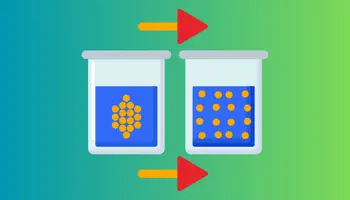
What AI Image Generator Is E...
Last updated 1 month ago
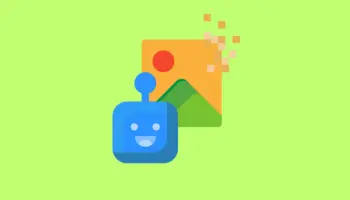
How to Make an AI Image Gene...
Last updated 1 month ago

What is the Best Free AI Ima...
Last updated 1 month ago

How to Use the Bing AI Image...
Last updated 1 month ago
.webp)
Understanding the Evolution...
Last updated 1 month ago
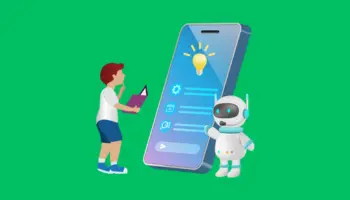
Leveraging the Power of AI f...
Last updated 1 month ago

Level Up Your Bullet Journal...
Last updated 1 month ago
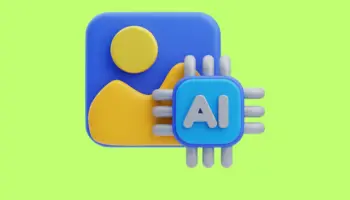
Design Inspiration: Eye-Catc...
Last updated 1 month ago
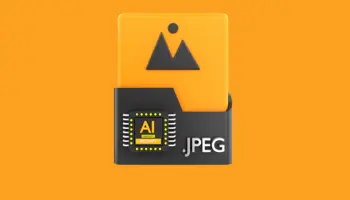
Unleash Your Inner Foodie: D...
Last updated 1 month ago

ASMR Prompts for Relaxation...
Last updated 1 month ago







